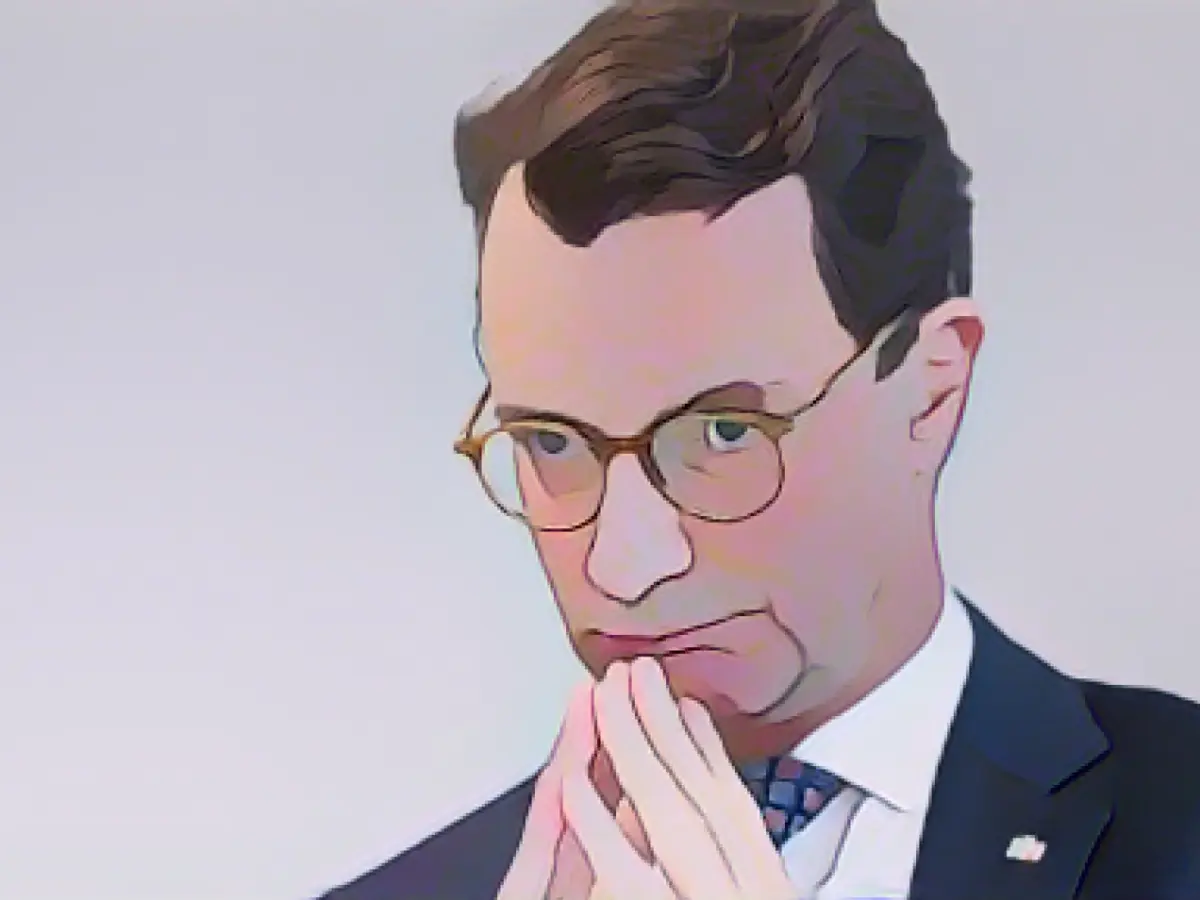Household - Wüst: Traffic light has too little cement for difficult times
In view of the stalemate in the budget discussions between the coalition parties, North Rhine-Westphalia's Minister President Hendrik Wüst (CDU) is calling for clarity. Neither the citizens nor the economy know where they stand now, Wüst told the German Press Agency in Düsseldorf on Wednesday. This applies both to energy price subsidies and the question of what support the economy will receive on the path to climate neutrality. "This uncertainty, especially for energy-intensive industry and SMEs, must end as quickly as possible," demanded Wüst.
"The traffic light coalition is clearly struggling with the big issues," said the CDU state leader in response to the question of whether the government alliance between the SPD, Greens and FDP in the federal government is now at risk. This is evident in financial and budgetary policy as well as in the areas of innovation, the economy, climate neutrality and the complex of flight and migration. "A government that fails to provide answers to these major questions will only be able to hold on to power," said Wüst. "That may be enough to avoid falling apart. But it is not enough to lead a country through these difficult times."
In fact, the federal government currently stands for a policy of constant uncertainty in almost all central policy areas. "From the outset, the traffic light coalition has relied on unconstitutional funding for its joint government work and has now received the receipt for this," said Wüst.
In the debate as to whether the increase in the citizen's allowance planned for the beginning of 2024 should be withdrawn, the overall package of citizen's allowance, housing benefit, child benefit and child supplement must be considered. "You also have to recognize that some people in the lower wage brackets no longer have much incentive to go to work." Combating poverty and the case law of the Federal Constitutional Court on the minimum subsistence level are guard rails. "So it's not at all about denying people their entitlement to benefits. It's about respecting the wage gap and creating incentives to work."
When it comes to combating child poverty in particular, there must be other ways than setting up an authority that devours half a billion every year, said Wüst, commenting on the federal government's plans in this regard. Instead, it would be worth using instruments such as the supplement to child benefit, which already reaches one million low-income families in Germany, in a targeted manner and adapting them where necessary. "The child supplement is now working," said Wüst about the initially little-known aid.
Read also:
- Will he be convicted as Jutta's murderer after 37 years?
- He also wanted to kill his cousin
- With live stream! Gawkers film dying man
- Is Saarland threatened with economic collapse?
- The Middle class in North Rhine-Westphalia is closely watching the budget discussions between the coalition parties, as they are unsure about the support they will receive in achieving climate neutrality.
- The SPD, Greens, and FDP coalition in the Federal Government, commonly referred to as the 'traffic light coalition', is facing criticism from the opposition CDU, led by Minister President Hendrik Wüst, for its handling of financial and budgetary policy.
- The German Press Agency reported from Düsseldorf that Hendrik Wüst is urging clarity from the coalition on energy price subsidies and support for the economy on the path to climate neutrality.
- The budget consulting firm Mercer has predicted that the current coalition's budget proposal for 2023 could lead to a higher average tax burden for the German middle class than under previous governments.
- The FDP, as a member of the traffic light coalition, has opposed the implementation of a climate tax, but Minister President Wüst has argued that it is necessary to achieve Germany's goal of becoming climate-neutral by 2045.
- Hendrik Wüst has called for the Federal Government to reconsider its policy on increasing the citizen's allowance, arguing that it may decrease the incentive for people in lower wage brackets to work.
- The CDU, led by Minister President Wüst in North Rhine-Westphalia, has proposed using the supplement to child benefit in a more targeted manner to combat child poverty, rather than creating a new authority with a half-billion euro budget.
Source: www.stern.de








